2025 Denise O’Donnell Day Pro Bono Awards
The late Denise O’Donnell Day, and namesake of this award, was a titan of pro bono service to underrepresented Idahoans. Her legacy of service, dedication to her community, and overall standard of professionalism in practice are pillars for any member of the Idaho State Bar to aspire to. Each year, we honor Denise’s legacy by awarding attorneys in each judicial district with the Denise O’Donnell Day Pro Bono Award, recognizing their admirable decisions to prioritize pro bono service in their practices. In addition to providing biographical information, this year’s recipients were asked the following two questions:
Why is pro bono work important to you? And, what encouragement would you give fellow attorneys to participate in pro bono work?
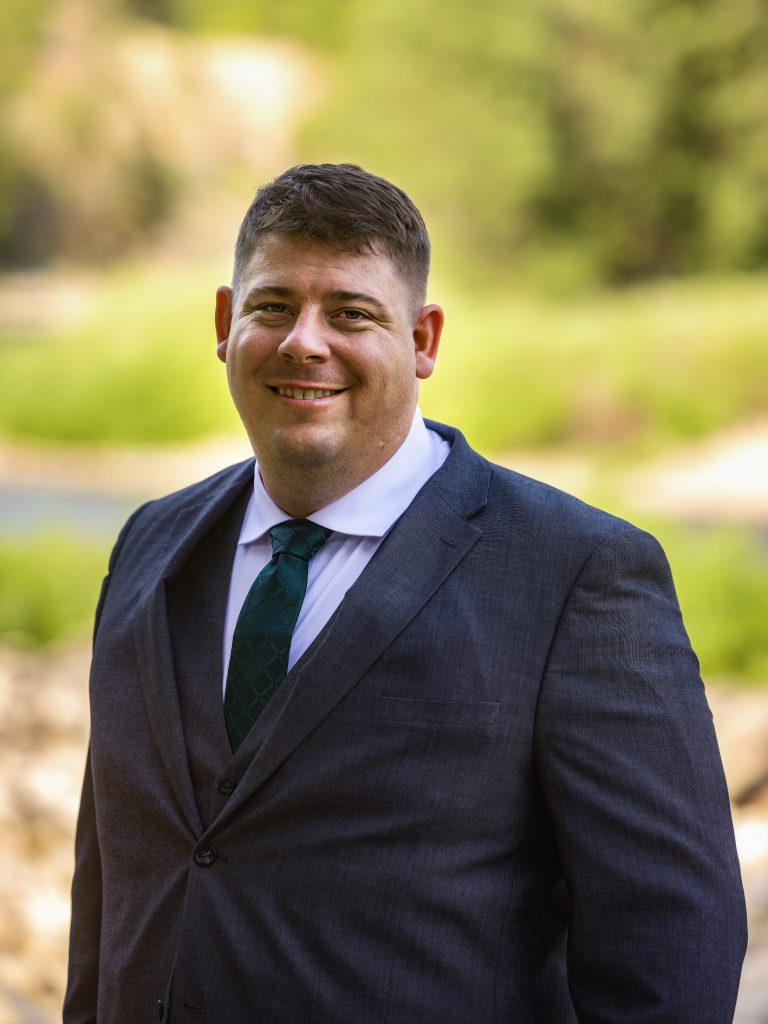
Health B. Wells – First District
Why Pro Bono? Having grown up in rural north Idaho, I understand some of the incredibly barriers to entry for legal services. Coming into law later in life, I can look back at the numerous times I needed legal representation but simply could not even afford to consult with an attorney. After obtaining my law degree I quickly realized the flood of people with legal needs and no resources to obtain paid representation. It is important to me that my office always strives to give back where possible.
Encouragement: Pro Bono work is difficult, and it tends to come with unique struggles both professionally and personally. But in the end, you get to help real people with real problems. The gratitude coming from clients when you are successful is something that we do not often see in this profession, and it is extremely satisfying to know that you helped produce a result that you believe is the right thing. The other part is that you can select only the cases that you actually believe in. Being selective and proactive in pro bono work can lead to the highest sense of accomplishment.
Growing up in Bonners Ferry, Heath Wells attended the Gonzaga University School of Law and was admitted into the Idaho Bar in 2020. After a few career transitions, Heath started Tamarack Legal Services PLLC, where he employes on additional attorney and six staff to handle cases mainly involved in family law and guardianship throughout the first judicial district.
The University of Idaho College of Law Clinics – Second District
Why Pro Bono? There is a great need for legal assistance throughout the state of Idaho, and many people and small businesses in our communities cannot afford private attorneys. The clinical faculty recognize their unique position of being able to provide free legal services while simultaneously training and mentoring our law students. Many of our students leave our clinical program with an understanding of the value of, and need for, pro bono work, and the impact they can have on their communities through this service. Our hope is that students will strive to incorporate pro bono work as part of their professional identity and fulfill their service expectations as members of the profession.
Encouragement: The College of Law has multiple opportunities for attorneys to participate in pro bono work while mentoring and teaching law students. From volunteering to assist at a wills clinic, to accepting a pro bono case through IVLP and then recruiting a student to assist with it, to bringing students in for special projects, attorneys can engage in pro bono work in a variety of ways, both big and small.
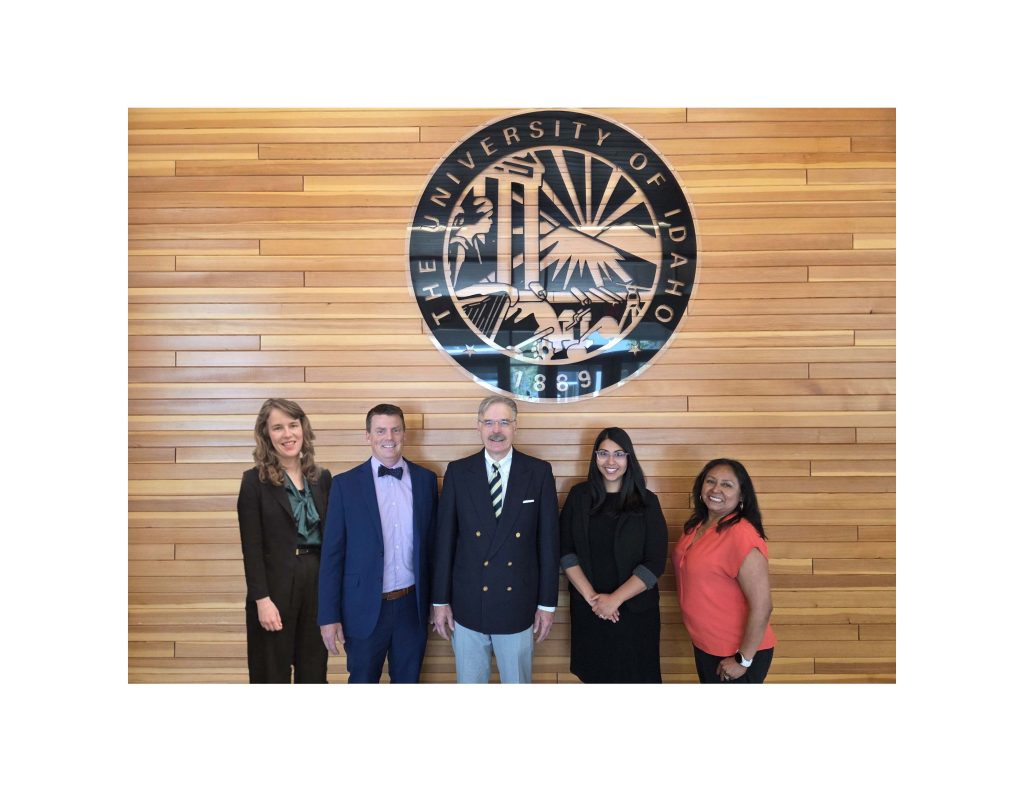
The University of Idaho College of Law clinical program seeks to provide students with meaningful real-life experiences while offering high-quality legal services to underserved members of our communities. The College currently has seven law clinics.
The Community Law Clinic is housed in Moscow and is supervised by Clinical Professor Jessica Long. Students in the Community Law Clinic represent clients throughout the Second Judicial District in family law matters and students also advise and represent tenants having disputes with their landlords, defend clients in consumer debt actions, and draft simple wills.
The Immigration Litigation and Appellate Clinic is supervised by Professor Geoff Heeren and Clinic Fellow Betsaida Chavez-Hermes; students from both Moscow and Boise participate in the clinic. Students in the Immigration clinic represent clients in appeals before the Ninth Circuit and the Board of Immigration Appeals; assist clients before the Immigration Court, the Asylum Office, and in interviews for other immigration benefits; and conduct community outreach, education, and trainings. The clinic also has a partnership with Washington State University to provide information and limited advice on immigration-related matters, primarily to DACA applicants and recipients. Each spring, two students from the Immigration Clinic argue a case before the Ninth Circuit Court of Appeals.
The Family Justice Clinic is housed in Boise—serving clients in the Fourth District—and is supervised by Instructor Anya Perret. Students in the Family Justice Clinic assist survivors of domestic violence and sexual assault seeking civil protection orders and represent clients in their family law cases. The clinic partners with Faces of Hope.
The Entrepreneurship Law Clinic is housed in Boise and is supervised by Assistant Professor Nick Smith and aided by attorney Alexandra Hodson. It helps entrepreneurs and small business owners by providing advice and preparing their business formation documents, also assisting with obtaining trademarks and drafting contracts and documents necessary to operate the business.
The Low-Income Taxpayer Clinic is supervised by Instructor John Hinton and is funded through a multi-year grant from the Internal Revenue Service. Professor Hinton is based in Boise, but students from both Moscow and Boise participate in this clinic. Students in the clinic assist low-income individuals who have tax disputes with the IRS and provide education and outreach to individuals who speak English as a second language. Students may also travel to Tax Court in Boise, Salt Lake City, and Reno to provide on-the-spot advice for taxpayers.
The Criminal Appellate Clinic is supervised by Professor Katie Ball and began serving clients in spring 2024. The State Appellate Public Defender refers cases to Professor Ball for consideration. Students in the clinic handle all aspects of the appeal, including interviewing the client and other relevant persons in the case, reviewing the record, identifying issues for appeal, preparing the notice of appeal, drafting the opening and reply briefs, and arguing before either the Idaho Court of Appeals or the Idaho Supreme Court. Students from both Boise and Moscow also have had the impactful experience of visiting their clients at various penal institutions around the state.
After a year of development, the Tribal Law Clinic launched in fall 2024 at our Moscow location to complement the College’s Native American Law Program (“NALP”). The clinic is run by Professor Jessica Millward. She and her students are currently developing a Medical-Legal Partnership with a tribally run health clinic. Medical-Legal Partnerships are partnerships between a medical provider and a legal aid clinic with the goal of reducing patient barriers to accessing an attorney and improving overall patient health by addressing the social determinants of health. Students in the Tribal Law Clinic also represent clients in criminal matters in the Nez Perce Tribal Court.
Students participating in the clinics are in their third year of law school and have limited licenses to practice law in the State of Idaho. They are required to work a minimum of 135 hours in the clinic each semester. In sum, the clinics have the dual benefit of helping students prepare for practice while providing a tremendous service to local and regional communities.
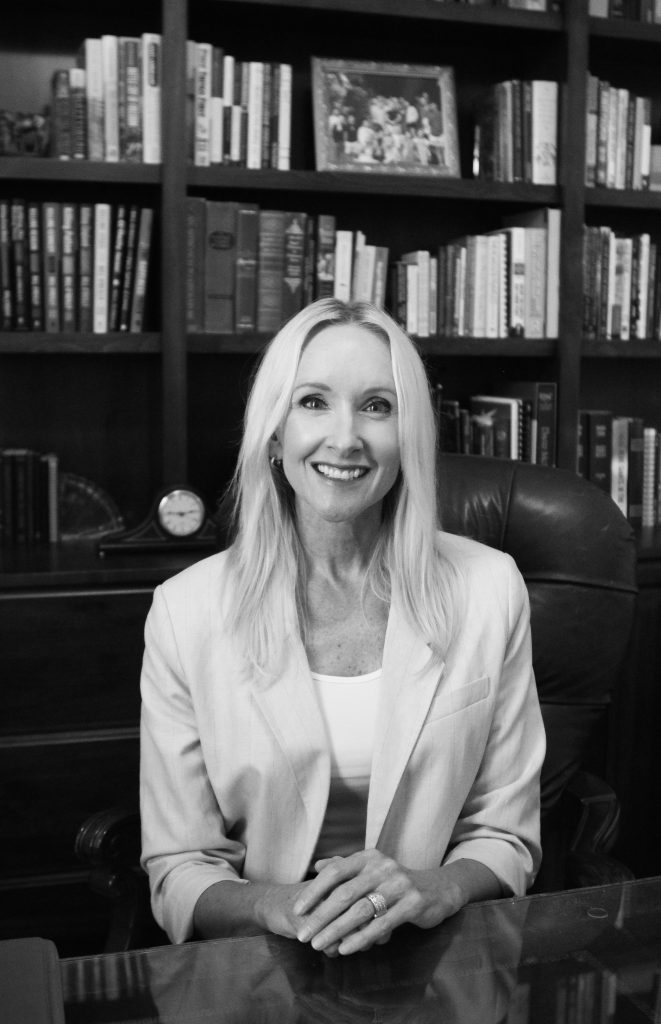
Angela Celyn Sasser – Third District
Why Pro Bono? Growing up in Idaho, I was surrounded by family and community members who consistently volunteered their time and resources. Volunteering has always been a part of who I am, and I believe it is the Idaho way! Whether it’s at my children’s schools, my service with non-profits, through my church, or IVLP, volunteering keeps me grounded and allows me to truly understand the needs of others. I have met some of my best friends and associates through volunteer work.
Encouragement: Reap the dividends of pro bono work! I have found service, even in the law, benefits me more than the client. Make pro bono work a priority, even if you only take on one pro bono case a year. In doing so, you will realize your unique skills and training as an attorney can truly change the lives of others. IVLP and the Idaho State Bar are very helpful in providing resources to assist you in pro bono work, as are other attorneys who are happy to tackle your inquiries and offer templates.
I attended law school at the University of the Pacific, McGeorge School of Law with distinctions as a dean’s list member, and as a recipient of the Witkin Award for Negotiations and Settlement. I graduated in December of 2002 and took the Idaho Bar in July of 2003. I clerked for Ada County district judges Darla Williamson and Kathryn Sticklen in 2004 and 2005. Thereafter, I worked for Sasser & Inglis, Sasser & Jacobson and Sasser Law Office.
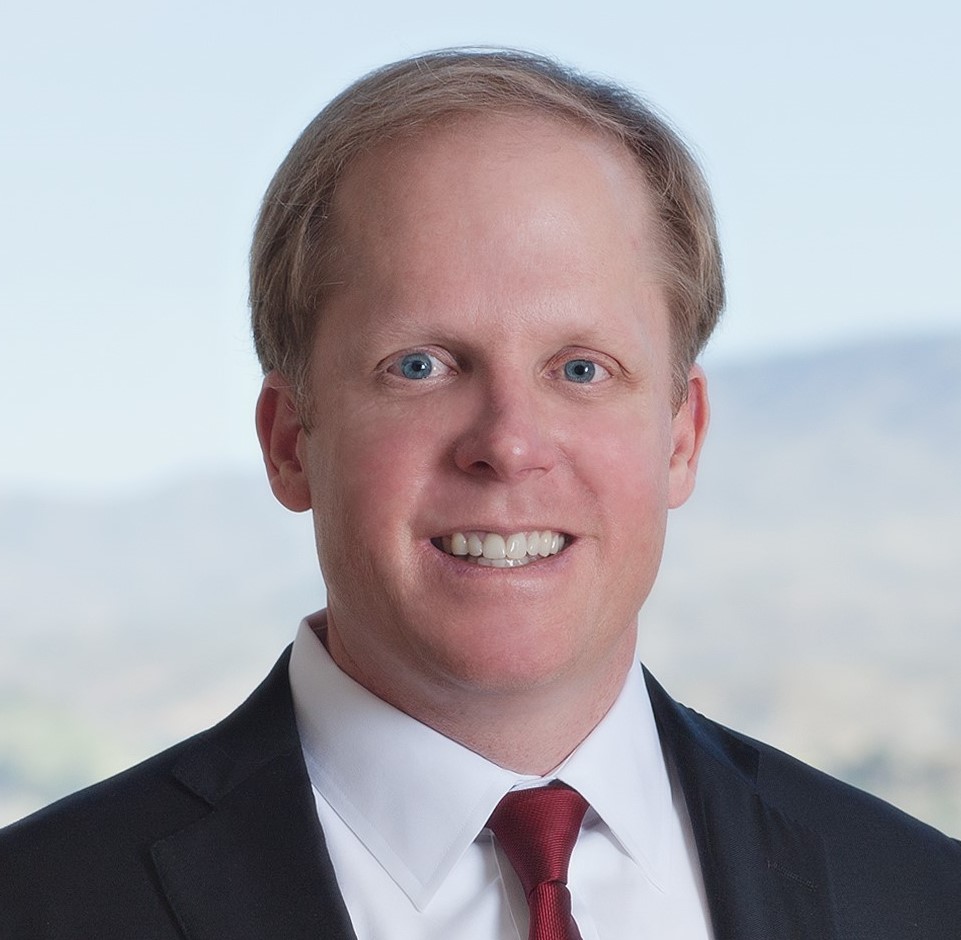
Clay Gill – Fourth District
Why Pro Bono? Our veterans pay an incredible price to protect our freedoms, including my grandfather who died in World War II and my father who served in the Navy. The message in front of the VA says it all, “the price of freedom is visible here.” Providing pro bono legal services for a veteran is the smallest of sacrifices I can give to them for their service to our country.
Encouragement: Navigating the legal system is challenging for anyone, especially the poor and vulnerable. Find a cause that is near and dear to your heart and then commit, you won’t regret it.
Clay Gill is Senior Counsel for J. R. Simplot Company. Clay’s team manages Simplot’s litigation, employment law, and labor law matters. Clay’s core professional philosophies are integrity, simplicity, and hard work, while constantly striving to improve the legal services that his team (including outside counsel) delivers to Simplot. Before joining Simplot, Clay’s was a partner at Moffatt Thomas and Hawley Troxell, specializing in commercial litigation and employment law.
Some of Clay’s successes in his 20+ years in private practice include: (1) getting a retaliation lawsuit brought by the EEOC tossed out of court, and an order requiring the EEOC to pay a significant portion of his client’s attorney fees; (2) collecting over $25 million from the federal government for breaching its loan contracts; (3) collecting over $11 million from a national franchisor who breached its distribution agreements, including an award of $4.5 million in punitive damages; and (4) collecting over $6 million for an executive whose business partners terminated the executive’s employment contract without good cause.
Clay is a graduate of Boise High (1987), Vanderbilt University (1991), and Tulane Law School (1994).

Bruce Castleton – Fourth District
Why Pro Bono? Pro bono work allows me to step outside of my own practice and be an attorney for the sake of just helping anyone who may need it. I have found that doing pro bono work makes the work I do for my regular clients more focused, and it gives me a better perspective in doing it. The amount of help I feel I really give to pro bono clients varies based on their needs and my ability to help them, but I have never felt it wasn’t worthwhile to do or that it wasn’t appreciated by the people I was trying to help.
Encouragement: Do what you can. Everyone has some time to give, and there are many different ways you can give something and I’ve found that every time you give, it truly means something to someone.
Bruce is a native of Preston, Idaho. He earned his bachelor’s degree in English literature from the University of Idaho. Following that he spent some time in the active-duty army as an artillery officer, and then attended law school at Brigham Young University. Upon graduating law school, he clerked for Chief Justice Linda Copple Trout of the Idaho Supreme Court, and then entered private practice. He spent fifteen years at Naylor & Hales in Boise where he became a senior partner before starting his own firm, Castleton Law, in 2020. His practice mainly centers on public entity litigation defense and risk management. He is married with four sons and spends a good deal of time watching football and traveling in order to watch football.
David Michael Taylor – Fifth District
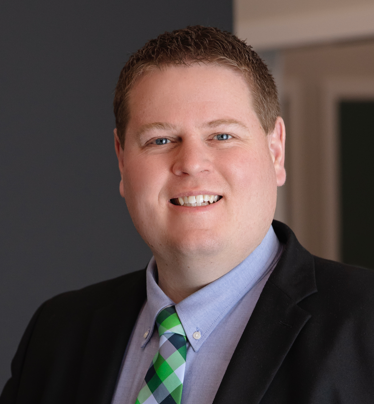
Why Pro Bono? I would be remiss if I did not share with others the talents and resources I have been blessed with. Being in estate planning, I do not get a lot of opportunities to help those in the legal community in need; however, I am grateful when and opportunity presents itself.
Encouragement: Life is short. Life is hard. Life is harder for some than others. Your level of difficulty may not be the same for someone in need of legal services who cannot afford them. Bless them and that will help you put the importance of service into perspective.
David worked in the restaurant and customer service industry for nearly 15 years before he applied for law school. After graduating from Boise State with a degree in English writing in 2009, he was unsure how to use his college education to find a career. Thankfully, Concordia School of Law came to Boise and made his decision easy to attend law school. During law school, he interned at Idaho Estate Planning, P.C. for just over a year. David was admitted to the bar in 2018. After failing as an estate litigation attorney, he decided to start my own practice in Estate Planning in Twin Falls. David’s wife, Kellie, works side by side with me at the law firm. David often says that he is more a salesman and that she is more of an attorney. They are parents to boy-girl twins who are ten years old.
Scott A. Pearson – Sixth District
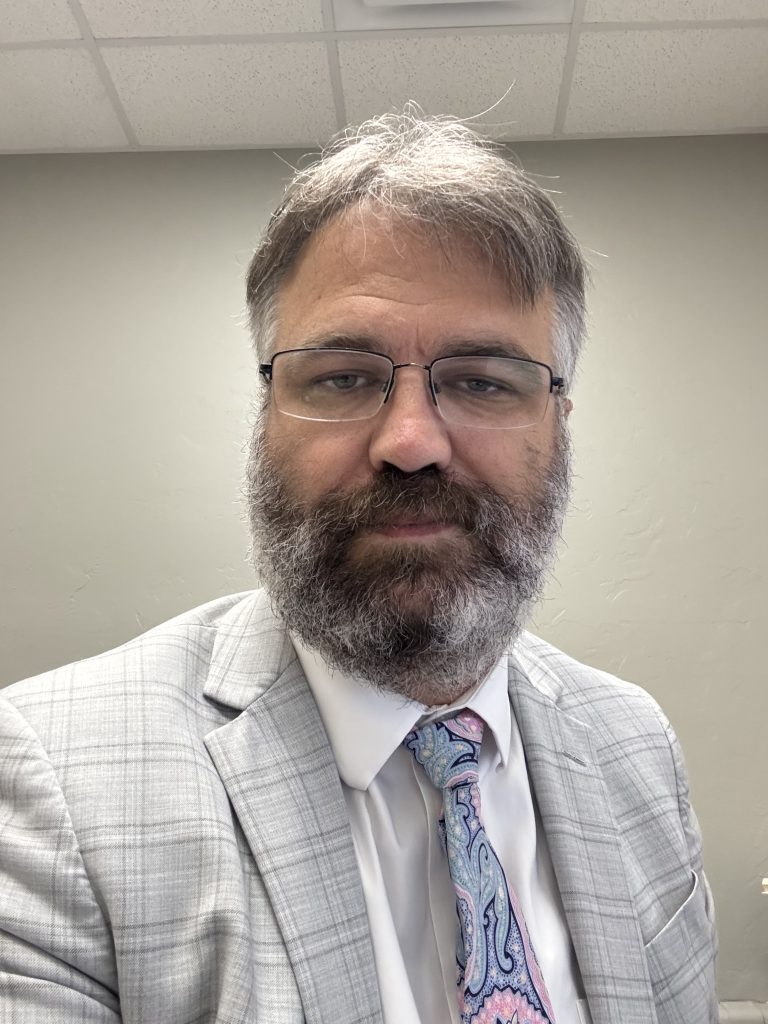
Why Pro Bono? “Real joy comes not from ease or riches or from the praise of men but from doing something worthwhile.” Sir Wilfred Grenfell
It really is kind of self-serving for me. I find joy in helping other people. It’s one of the reasons I journeyed into this profession, to help others in any way that I could.
Encouragement: Don’t wait for the big moments or the grand opportunities. You have to go to them. Small acts and short steps will lead to big moments and grand opportunities.
Scott graduated with a B.A. in political science from Idaho State University in 2014 and received his J.D. from the University of Idaho College of Law in 2017. The bulk of Scott’s career has been in public defense with a recent departure to prosecution with Bannock County. Scott and his wife have an amazing family with four children and recently their first grandchild. In his prior life, he was a member of the Idaho Army National Guard for just over 14 years, from 2001 to 2015. That experience took him around the world and had a profound impact on who he is today. Unfortunately, an injury cut his enlistment short, but he still tries to give back and engage with the Veteran community whenever he can.
Matthew Bardsley – Sixth District
Why Pro Bono? Pro bono work is important because it is one way we as attorneys can use our knowledge and skill to help vulnerable populations.
Encouragement: A Gallup Poll done at the end of last year showed a massive drop in the public confidence in the judicial system. Pro Bono work can be one way to help restore confidence in the work we do.
I attended law school at the University of Idaho Law School. I was admitted to the Bar in 2018. I started my career at Lovan Roker & Rounds working under two excellent attorneys, Tyler Rounds and Matt Roker. I moved back to Pocatello in 2021 and began clerking with Honorable Rick Carnaroli. I have been clerking with Judge Carnaroli for the last four years and am extremely grateful for the guidance and mentorship that I have received.
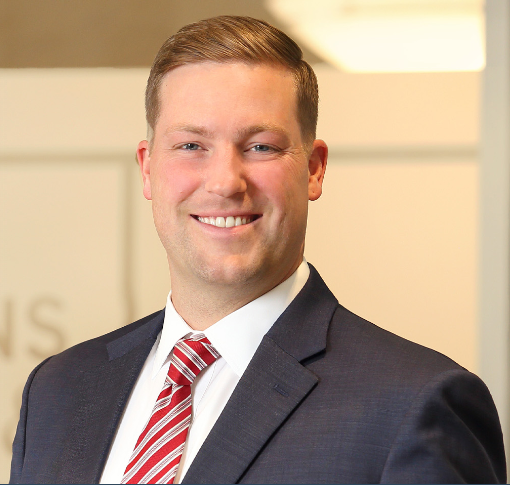
Daniel E. Biddulph – Seventh District
Why Pro Bono? Pro bono work is a way to ensure the legal system serves everyone, not just those who can afford it. I believe access to justice is a foundational principle of our profession, and pro bono work allows me to use my skills in a way that directly improves lives, communities, and trust in the legal system. It also reminds me why I became an attorney in the first place: to advocate for people when they need it most.
Encouragement: You do not need to take on dozens of cases to make a difference. Even one matter can have a lasting impact on someone’s life. I have found that pro bono clients are some of the most grateful people I have ever worked with, and the work itself is often some of the most meaningful. I would encourage attorneys to look for a cause or a need that resonates with them personally. It is good for the community, and honestly, it is good for the soul.
Dan is a civil litigation attorney based in Idaho Falls with Parsons Behle & Latimer. He earned his law degree from the University of Utah S.J. Quinney College of Law in 2021 and was admitted to the Idaho State Bar the same year. His practice focuses on business and real estate litigation, and he represents individuals, small businesses, and larger organizations in both state and federal courts.
Dan and his wife are raising four kids, which keeps life full and busy. He enjoys golfing whenever he can find the time.

